There was so much light in Josh's death. Five of us flew to L.A. to be with him in his final days—four friends and me, his girlfriend. His mother, father, stepmother, and brothers were there, too. He wanted his door open, the sounds of us drifting in. We laughed, and cried, and held each other. We waited for Josh to wake. His eyes would flutter open and he'd smile. "Hey, I know you. I like you." One evening, we walked to see the beach through streets thick with sunshine until we could see the line of the ocean. This is what made Josh, I thought. We watched an enormous orange sun sink into the ocean. It hung on the horizon for a long time, and then it was gone.
I'd never been a beach person. My first love was a manic-depressive artist, and being with him had felt like lightning ripping through a tangled forest. My previous relationships progressed in a combustible way, the longest less than a year. At 37, I wanted to be stretched by love.
I'd been looking for eight months when Josh found me. He was a fiction author and New York University professor, and I had such a crush on his zany OkCupid profile. We had our first date last year, in early May, and a month later, Josh took me to a house his family had on the Jersey Shore. We had such fun wading into the cold ocean, people-watching, and lazing in bed. How simultaneously sexy and comforting it was to be close to Josh, like nothing so much as the beach. That blue-ocean roll and soul.
"How simultaneously sexy and comforting it was to be close to Josh, like nothing so much as the beach. That blue-ocean roll and soul."
After our beach weekend, Josh said he wasn't interested in seeing anyone else. I felt the same. He asked to see more of me. He left me whimsical notes, complimented the smallest things, cooked, made me laugh. He had a "talk about everything" rule. We spoke about exes, sex, the end of his 10-year marriage. "Do you think your divorce left you damaged?" I asked him.
"No," he'd said. "I think the more you've loved, the more you're able to love." Emotionally, Josh was the healthiest man I'd been with.
Seven years before we met, Josh had been diagnosed with stage IV melanoma and had surgery on his neck, stomach, and knee. His cancer was held in check by immunotherapy drugs. I'd been diagnosed with the liver disease primary sclerosing cholangitis at 23. Though the prognosis is liver failure, my disease remains stable. It was a relief to tell each other about our health conditions without the drama that often accompanies such revelations. Symptoms punctuated our days, but we made wonderful lives around them.

The first week in August, Josh went to Memorial Sloan Kettering Cancer Center for scans because he was experiencing intense back pain. I had stayed over at his apartment, and he left early for the appointment. When I woke, there was a note that read, Please help yourself to juice, a muffin, or a croque madame from our talented, if crotchety, chef Lorraine, and feel free to partake in a gallop on Mr. Wiggles, our drunken Saint Bernard.
Stay In The Know
Marie Claire email subscribers get intel on fashion and beauty trends, hot-off-the-press celebrity news, and more. Sign up here.
Waiting to hear his scan results, I felt intense anxiety. Then I remembered: We are, all of us, in every moment, dying. Having watched my invincible father become a quadriplegic in an accident when I was a child, I knew that the body dies. The present, and the belief we imbue it with, is all any of us have. The present with Josh—the world of sweetness and hilarity he created in the face of incredible odds—was easy to choose.
Josh's scans revealed minimal changes. He said they'd likely prescribe a different immunotherapy drug, but in the meantime, his doctors were trying to arrange a procedure at a cancer center in Houston that could eradicate his cancer altogether. It would involve removing a tissue sample to extract cancer-fighting T cells, growing them for four to eight weeks, and then implanting them back in his body. Josh, I, and everyone who loved him stored so much hope in this procedure.
By late August, Josh's back pain had worsened and he took a leave of absence from NYU. We watched Friday Night Lights in bed when he was too sick to go out. "I'm going to take you on so many dates when I'm better," he said. He'd been very sick before and had always recovered.
"I'm going to take you on so many dates when I'm better," he said.
After two days of unproductive doctor's appointments, we went to a party at the Brooklyn Botanic Garden. Fireflies rose over the lily pads. Curled in bed the next morning, Josh said, "I love you." When I said it back, he threw his fists in the air and cried, "Yay!" Ours was not the airless love of the dying, but the well-ventilated love of people who'd found the person they wanted to grow old with.
The next day, we flew to Buffalo for my best friend Katie's wedding. I've never loved being in front of an audience, so Josh listened to me practice my toast on the train to the airport, twice in our B&B room, three times in a Buffalo park, and one final time parked in the car outside the wedding chapel. He cried every time. He said seven minutes was perfect, but it was twice as long as the other toasts and felt longer amid the rising chorus of babies crying. I looked at Josh and he was crying, too—for the eighth time. I barreled through and he reassured me the minute I sat down.]

In mid-September, Josh flew to Houston to be evaluated for the T-cell procedure. When he cried over the phone, I feared that the doctor had told him that he only had months to live. But it was just that he was in pain and needed me to overnight his medication. The doctors had decided to perform the initial part of the procedure while he was there.
Later, when I told Josh I had imagined the worst, he huffed at the absurdity: "I'm not going to die. Why didn't you talk to me?" His "talk about everything" rule included his own death.
"I need to know that you believe you're going to live," I said. "I want a life with you."
"I want that, too," he said, "and I believe I'm going to live a long, happy life."
After the procedure, Josh returned home in immense pain. On September 30, he began the first of three doses of intravenous chemotherapy, which the doctors hoped would offer temporary relief. But it made him worse. Still, there were such highs. The first Saturday of October, I woke to Josh crying. He said he'd seen the sweater I'd slept in and been hit with a wave of gratitude for that feeling of wanting to take care of someone, for a love that made him larger. "They're good tears," he said.
"I cried because Josh was in so much pain and there was so little I could do, because I was afraid of losing him and sometimes felt as if I already had. Because even his skin hurt and we could not touch."
On October 19, Josh's abdominal and back pain were so severe that he checked in to Memorial Sloan Kettering Cancer Center, where he spent three days receiving treatment. When he returned home, I slept beside him because he said it was comforting. His 6'1" body had dropped to 130 pounds, and the pain sometimes made him curl up in a ball. He described it as an audible buzz. Noise hurt, so we whispered. His painkillers made him twitch awake every few minutes and wring his hands, his mouth wrenched open like he was gasping for air. His family came in shifts from California to care for him, so he could be near his doctors. They stayed with Josh during the day. I went home and bawled in front of my computer. I cried because Josh was in so much pain and there was so little I could do, because I was afraid of losing him and sometimes felt as if I already had. Because even his skin hurt and we could not touch.
On October 26, Josh called, excited to tell me that the cancer center in Houston had grown twice the number of cancer-fighting T cells needed for his procedure. I trumpeted the news to his family and we were all on a high, but over the next few days, his health worsened. On October 30, he told me he thought he was too sick for the treatment. And then he texted: "I'm sorry if it feels like I'm pulling away. I'm just so confused about how to feel better." He wanted to protect me.
"Don't do that; that hurts more. Let me be there for you," I said, and he did.
I thanked him for making me larger, for letting me love him, for allaying my early relationship anxieties and pulling me into his assurance that everything would be OK. "I'm sorry I was wrong about that," he said.
"Even as he was dying, Josh was so alive."
I told him not to lose hope. He was flying to L.A. to start hospice care in his father and stepmother's home, and the doctors said he might regain the strength to have the second part of his procedure. He told me he hadn't given up. "I want a life with you," he said.
On November 5, a day after his 43rd birthday, he left for L.A. I flew out three days later. Even as he was dying, Josh was so alive. His friend Jake and I watched in awe as he sat up in bed and danced with his eyes closed to the Alabama Shakes' "Don't Wanna Fight." The five of us knew that he wouldn't let go until we left, so we said our good-byes. I left November 11. On November 13, Josh's mom called to tell me he had taken his last breath while she and his father and stepmother held his hands.
No matter how much I had wanted to use our final conversations to tell Josh how grateful I was for his love, he wanted to make sure that I wouldn't be broken by his death, to insist that the more we've loved, the more we're able to love again. "Spoon," he had whispered when he could barely speak. He waved me into bed and turned on his side to let me be the big spoon.
This article appears in the June issue of Marie Claire, on newsstands now.
-
 Rihanna Drops a Not-So-Subtle Hint at Her 2024 Met Gala Fashion Plans
Rihanna Drops a Not-So-Subtle Hint at Her 2024 Met Gala Fashion Plans"I'm actually keeping it really simple this year."
By Danielle Campoamor Published
-
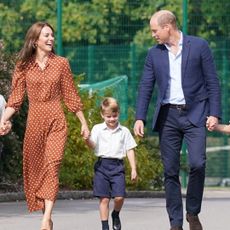 Here's Why Kate Middleton Broke Tradition and Released Prince Louis' Birthday Photo Late
Here's Why Kate Middleton Broke Tradition and Released Prince Louis' Birthday Photo LateIn the past, the Princess of Wales has shared her children's birthday photos right away.
By Danielle Campoamor Published
-
 Kristen Bell Says Husband Dax Shepard Recorded Her "On Laughing Gas"
Kristen Bell Says Husband Dax Shepard Recorded Her "On Laughing Gas""I'd expect nothing less."
By Danielle Campoamor Published
-
 30 Female-Friendly Porn Websites for Any Mood
30 Female-Friendly Porn Websites for Any MoodAll the best websites, right this way.
By Kayleigh Roberts Published
-
 The 82 Best Cheap Date Ideas for Couples on a Budget
The 82 Best Cheap Date Ideas for Couples on a Budget"Love don't cost a thing." —J.Lo
By The Editors Last updated
-
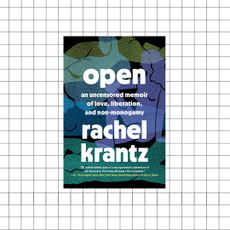 Diary of a Non-Monogamist
Diary of a Non-MonogamistRachel Krantz, author of the new book 'Open,' shares the ups and downs of her journey into the world of open relationships.
By Abigail Pesta Published
-
 COVID Forced My Polyamorous Marriage to Become Monogamous
COVID Forced My Polyamorous Marriage to Become MonogamousFor Melanie LaForce, pandemic-induced social distancing guidelines meant she could no longer see men outside of her marriage. But monogamy didn't just change her relationship with her husband—it changed her relationship with herself.
By Melanie LaForce Published
-
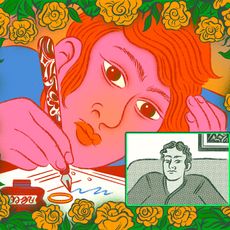 COVID Uncoupling
COVID UncouplingHow the pandemic has mutated our most personal disunions.
By Gretchen Voss Published
-
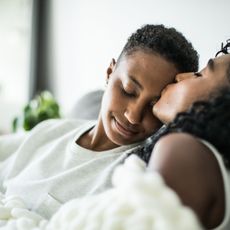 16 At-Home Date Ideas When You're Stuck Indoors
16 At-Home Date Ideas When You're Stuck IndoorsStaying in doesn't have to be boring.
By Katherine J. Igoe Published
-
 Long Distance Relationship Gift Ideas for Couples Who've Made It This Far
Long Distance Relationship Gift Ideas for Couples Who've Made It This FarAlexa, play "A Thousand Miles."
By Jaimie Potters Published
-
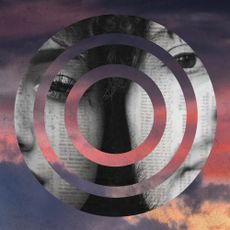 15 Couples on How 2020 Rocked Their Relationship
15 Couples on How 2020 Rocked Their RelationshipCouples confessed to Marie Claire how this year's many multi-stressors tested the limits of their love.
By Sherry Amatenstein, LCSW Published